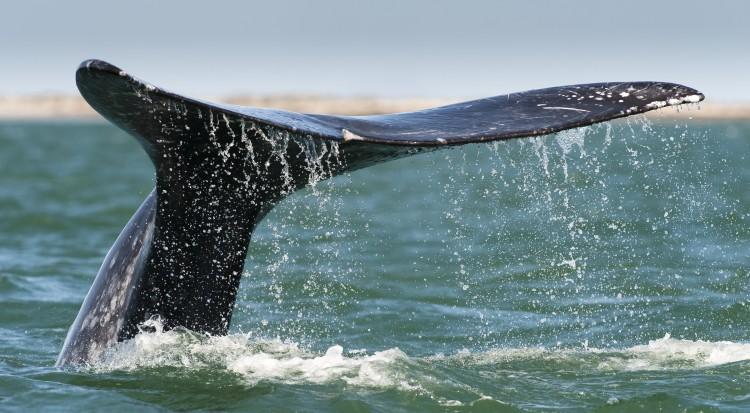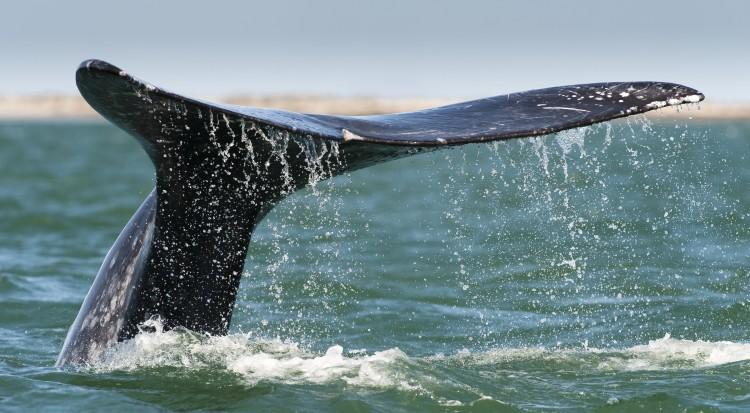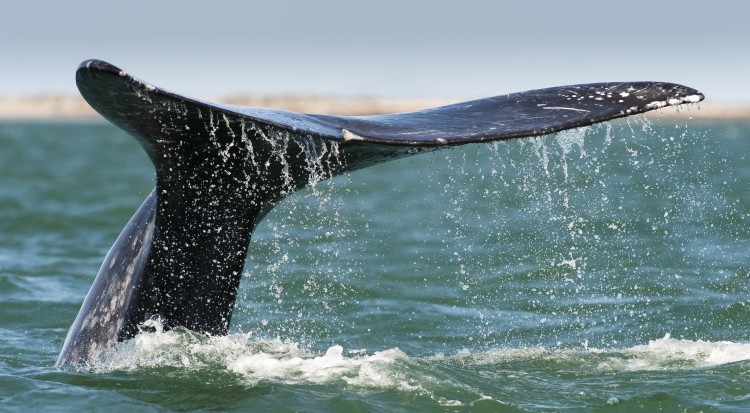Japan’s whaling industry is rudderless, or “dead in the water,” without government subsidies, said a report from an animal conservation group Tuesday, suggesting that whale watching might be more economically viable in the future.
The International Fund for Animal Welfare (IFAW) report points out that the Japanese government has relied on taxpayer subsidies for more than two decades to support whaling, which it has said is for scientific or research purposes. However, a number of governments have criticized Japan for its annual Southern Ocean whale hunt, accusing it of killing the whales only for meat.
At the same time, the report found that “a majority of Japanese are utterly indifferent to whaling and have no interest in eating whale meat.” It also points out that Japan could probably capitalize on whale watching to “build a better economic future.”
“Two decades working on whaling and other issues in and around Japan, have brought a deeper understanding and appreciation of Japanese culture and particularly the extent to which pro-whaling bureaucrats in Tokyo cynically (and effectively) package and sell their wrongheaded pro-whaling policies in cultural terms—furiously insisting that anyone opposed to commercial whaling is somehow anti-Japanese,” IFAW’s Patrick Ramage writes.
Despite a dramatic decrease in the demand for whale meat, the Japanese government still uses millions of taxpayer dollars to prop up the apparently lackluster industry, reported the Guardian Monday. Some of those subsidies included around $24 million that was supposed to be used for reconstruction efforts after the devastating earthquake and tsunami in March 2011.
“Whaling is an unprofitable business that can survive only with substantial subsidies and one that caters to an increasingly shrinking and ageing market,” states IFAW’s report, the Guardian reports.
“This subsidy is supposed to help fishermen in financial trouble,” investigative journalist Junko Sakuma told the Australia Broadcasting Corporation, which published a separate report on Japan’s whaling subsidies. “Now it’s propping up the unprofitable whaling fleet, and if they keep running a loss, they won’t even have to pay it back.”
Masayuki Komatsu, a former official with the International Whaling Commission, said that reports of more subsidies show that the industry is in deep trouble.
“It’s not sustainable, right. How long can you get such money from the government? Everybody likes money, particularly other people’s money,” he told the broadcaster.
The Japanese whaling fleet is just now entering Antarctic waters and will likely do battle with activists from Sea Shepherd, a militant conservation group.
However, professor Komatsu with the national graduate institute for policy studies in Tokyo said that while the current model is unsustainable, he has a different solution approach: increase the number of whales killed each year.
“For older Japanese, whale meat is something special that you are happy to pay a premium for,” he told the Guardian. “But young people have never experienced the taste. It’s not special to them, and there are plenty of other sources of protein they can turn to. Japan needs to sell whale meat at a competitive price, similar to that of pork or chicken, and to do that it needs to increase its annual catch.”






